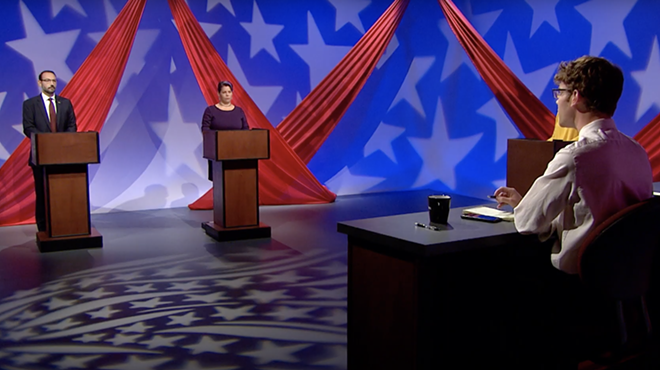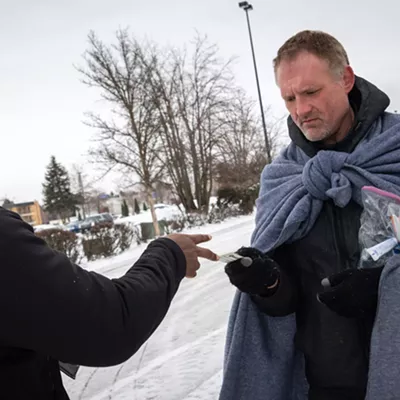The city of Spokane is once again using one-time money that was intended for something else. On Monday, City Council members voted 6-1 to put the city's remaining $6.1 million in federal COVID-relief money toward operating costs to keep the 350-bed East Trent Avenue shelter afloat through the winter. Of that money, $1.2 million was supposed to go to a mobile medical program and $300,000 was to be for eviction defense, but the city couldn't find a qualified provider to take on the contracts. Another $4 million was to go to an affordable housing project, which the city now plans to fund with the city's affordable housing sales tax, called the 1590 Fund. Council member Michael Cathcart, the sole "no" vote, said the vote was a misuse of the 1590 Fund, and he raised larger concerns about the city's ongoing reliance on one-time money to fund the shelter. Other council members agreed, and accused the Woodward administration of failing to provide a plan. But they also argued that the fiscally dubious use of one-time money is still preferable to shutting the shelter down as winter approaches. The money allocated Monday will run out in less than a year, and it's unclear how the city will fund the shelter after that. (NATE SANFORD)
GIVING IT SOME GAS
Despite concerns from Pacific Northwest politicians, tribes, environmental groups and residents, the Federal Energy Regulatory Commission approved the expansion of a natural gas pipeline that passes through the Inland Northwest last week. The Gas Transmission Northwest Xpress pipeline stretches from British Columbia to California, crossing through North Idaho and Eastern Washington (including Liberty Lake and Spokane Valley). Pipeline owner TC Energy will expand the capacity of the existing line by increasing the power of compressor stations in Idaho, Washington and Oregon. Opponents worry that the project will add to greenhouse gas emissions in the region and questioned the safety of increasing pressure on the decades-old line. According to FERC's certificate for the project, "the operation and reasonably foreseeable downstream [greenhouse gas] emissions could potentially increase emissions by 8% in Idaho, by 0.7% in Washington, and by 1.1% in Oregon" in coming years. Opponents plan to petition for a rehearing. (SAMANTHA WOHLFEIL)
GETTING SCHOOLED
Students across the country may get to go to college for free under a federal-state partnership proposed in the U.S. Senate. On Monday, Sen. Patty Murray, D-Wash., and eight other Senate Democrats introduced the America's College Promise Act of 2023, which would make two-year technical and community colleges free for many students. If passed, the federal and state governments would work together to fund tuition waivers. "The problem is: for far too many students, these opportunities are simply out of reach — and that's got to change," Murray said in a statement. To be eligible for the proposed waiver, students would have to attend an eligible institution more than half-time and qualify for in-state tuition. So far, no Republicans have signed on to co-sponsor the bill. (COLTON RASANEN)






















